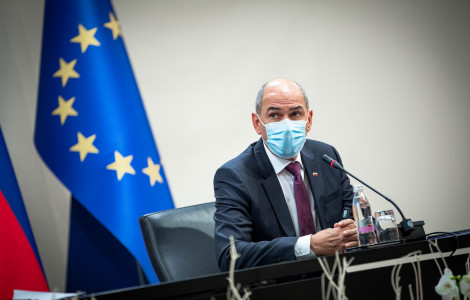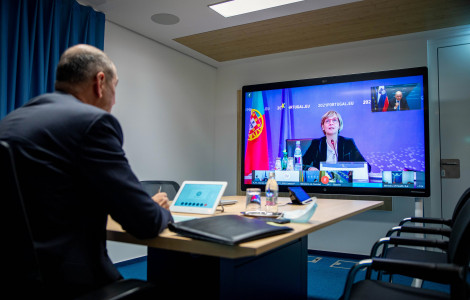This past week, health centres across Slovenia began administering the COVID-19 vaccines to the general population. Those older than eighty will receive the vaccine first. According to experts, the epidemic curve is still rising, so no relaxation of the measures to contain the epidemic can be expected any time soon. Schools thus remain closed, and the state of epidemic has been extended until mid-March.
The government and the NIJZ have presented the vaccination plan for the first half of the year. Based on this plan, next month around 17,000 doses of the Pfizer vaccine will be supplied weekly and will first be administered to those over eighty, followed by those over seventy. These supplies will also be used to administer the second dose to those already vaccinated. Slovenia is in favour of the EU enhancing its efforts to speed up vaccination, and proposes increasing the vaccine production capacities within the EU. According to Prime Minister Janez Janša, it seems all restrictive measures (both mild and severe) will have to remain in place until at least spring.
All opportunities will be taken for Slovenia to emerge from the crisis successfully and for its economy to recover after the pandemic. Slovenia sees one such opportunity in space technology, which will play an important role in activating a new economic cycle because it can help increase productivity, improve mobility, and speed up digitalisation and the more efficient use of resources. Space technology is vital for faster economic development and recovery after the pandemic, achieving environmental goals, digitalisation, defence and security, as well as better functioning of the public sector and everyday life. The development of space is also an important generator of new innovations, which can then be applied effectively to many other areas. Many opportunities are opening up in this area because, by becoming an associate member of the European Space Agency, Slovenia has also opened this segment for the domestic scientific and business communities.






